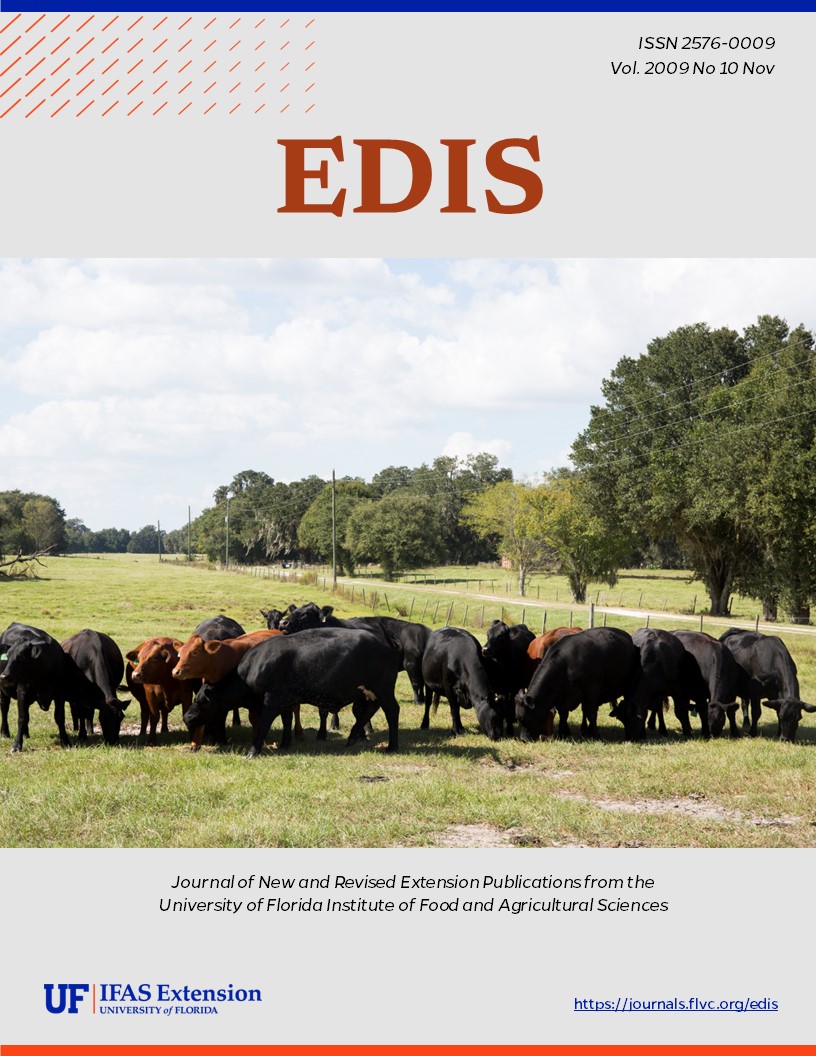Abstract
Revised! FCS2137, a 5-page fact sheet by Kate Fogarty and Garret D. Evans, describes the benefits for children, fathers, and families when the father is more involved with his children. Includes references. Published by the UF Department of Family Youth and Community Sciences, November 2009.
References
Almeida, D. & Galambos, N. (1991). Examining father involvement and the quality of father-adolescent relations. Journal of Research on Adolescence, 1, 155-172. https://doi.org/10.1207/s15327795jra0102_3
Badalament, J. (2008). Engaging modern dads in schools. Independent School, 67. [Online] Retrieved November 10, 2008 from http://www.pressomatic.com/tridentacademy/upload/msilgals//Why%20Schools%20Need%20to.pdf.
Bernadett-Shapiro, S., Ehrensaft, D., & Shapiro, S. (1996). Father participation in childcare and the development of empathy in sons: An empirical study. Family Therapy, 23, 77-93.
Blum, R.W., Beuhring, T., Shew, M.L., Bearinger, L.H., Sieving, R.E., & Resnick, M.D. (2000). The effects of race/ethnicity, income, and family structure on adolescent risk behaviors. American Journal of Public Health, 90, 1879-1884. https://doi.org/10.2105/AJPH.90.12.1879
Bronte-Tinkew, J., Carrano, J., Horowitz, A., & Kinukawa, A. (2008). Involvement among resident fathers and links to infant cognitive outcomes. Journal of Family Issues, 29, 1211-1244. https://doi.org/10.1177/0192513X08318145
Chang, J.J., Halpern, C.T. & Kaufman, J.S. (2008). Maternal depressive symptoms, father's involvement, and the trajectories of child problem behaviors in a US national sample. Journal of the American Academy of Child & Adolescent Psychiatry, 47, 470-472.
Coakley, T. (2008). Examining African-American fathers' involvement in permanency planning: An effort to reduce racial disproportionality in the child welfare system. Children & Youth Services Review, 30, 407-417. https://doi.org/10.1016/j.childyouth.2007.10.015
Flouri, E. (2008). Fathering and adolescents' psychological adjustment: The role of fathers' involvement, residence, and biology status. Child: Care, Health & Development, 34, 152-161. https://doi.org/10.1111/j.1365-2214.2007.00752.x
Flouri, E., & Buchanan, A. (2002). The role of father involvement in children's later mental health. Journal of Adolescence, 26, 63-78. https://doi.org/10.1016/S0140-1971(02)00116-1
Gadsden, V., & Aisha, R. (2003). Fathers' role in children's academic achievement and early literacy. ERIC Digest Document ED482051. Champaign, IL: ERIC Clearinghouse on Elementary & Early Childhood Education.
Hossain, Z., & Roopnarine J. (1994). African-American fathers' involvement with infants: Relationship to their functioning, style, support, education, and income. Infant Behavior & Development, 17, 175-184. https://doi.org/10.1016/0163-6383(94)90053-1
Jain, A., Belsky, J., & Crnic, K. (1996). Beyond fathering behaviors: Types of dads. Journal of Family Psychology, 10, 431-442. https://doi.org/10.1037/0893-3200.10.4.431
King, V. (1994). Nonresident father involvement and child well-being: Can dads make a difference? Journal of Family Issues, 15, 78-96. https://doi.org/10.1177/019251394015001004
Lamb, M.E., & Lewis, C. (2004). The development and significance of father-child relationships in two-parent families. In M.E. Lamb (Ed.), The Role of the Father in Child Development, 4th Edition (pp. 272-306). Hoboken, NJ: Wiley.
Lamb, M.E., & Tamis-Lemonda, C.S. (2004). The role of the father: An introduction. In M.E. Lamb (Ed.), The Role of the Father in Child Development, 4th Edition (pp. 1-31). Hoboken, NJ: Wiley.
Lundahl, B.W., Tollefson, D., Risser, H., & Lovejoy, M. C. (2008). A meta-analysis of father involvement in parent training. Research on Social Work Practice,18, 97-106. https://doi.org/10.1177/1049731507309828
Marsiglio, W., Day, R.D., & Lamb, M.E. (2000). Exploring fatherhood diversity: Implications for conceptualizing father involvement. Marriage and Family Review, 29, 269-293. https://doi.org/10.1300/J002v29n04_03
McBride, B., Schoppe-Sullivan, S.J., & Ho, M.H. (2005). The mediating role of fathers' school involvement on student achievement. Applied Developmental Psychology, 26, 201-216. https://doi.org/10.1016/j.appdev.2004.12.007
Palkovitz, R. (2002). Involved fathering and child development: Advancing our understanding of good fathering. In C.S. Tamis-LeMonda & N. Cabrera (Eds.), Handbook of Father Involvement: Multidisciplinary Perspectives (pp. 119-140). Mahwah, NJ: Lawrence Erlbaum.
Parke, R.D., McDowell, D.J., Kim, M., Killian, C., Dennis, J., Flyr, M.L., & Wild, M.N. (2002). Fathers' contributions to children's peer relationships. In C.S. Tamis-LeMonda & N. Cabrera (Eds.), Handbook of Father Involvement: Multidisciplinary Perspectives (pp. 141-167). Mahwah, NJ: Lawrence Erlbaum.
Peters, B., & Ehrenberg, M.F. (2008). The influence of parental separation and divorce on father-child relationships. Journal of Divorce & Remarriage, 49, 78-109. https://doi.org/10.1080/10502550801973005
Pleck, J.H., & Masciadrelli, B.P. (2004). Paternal involvement by U.S. residential fathers: Levels, sources and consequences. In M.E. Lamb (Ed.), The Role of the Father in Child Development, 4th Edition (pp. 222-271). Hoboken, NJ: Wiley.
Sarkadi, A., Kristiansson, R., Oberklaid, F., & Bremberg, S. (2008). Fathers' involvement and children's developmental outcomes: A systematic review of longitudinal studies. Acta Paediatrica, 97, 153-158. https://doi.org/10.1111/j.1651-2227.2007.00572.x
William, E., N. Radin, & Allegro, T. (1992). Sex role attitudes of adolescents reared primarily by their fathers: An 11-year follow-up. Merrill Palmer Quarterly, 38, 457-476.

